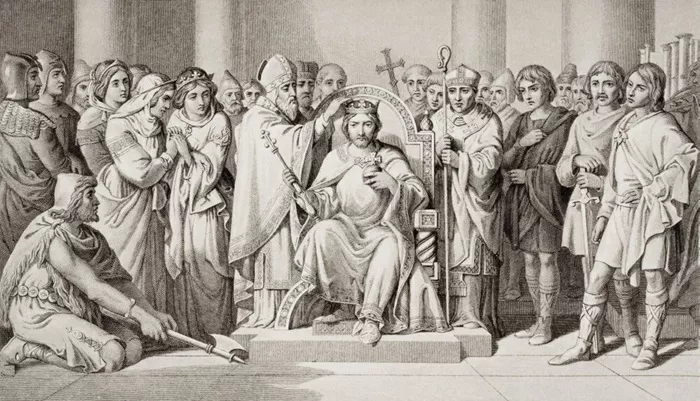January 6 has been a significant date in British history, marked by various important events across centuries. This article explores notable occurrences on this date, detailing their historical contexts and implications. From the coronation of the last Anglo-Saxon king to the birth of influential figures, each event contributes to the rich tapestry of Britain’s past.
What Happened on January 6 in British History?
1066: The Coronation of Harold II
On January 6, 1066, Harold Godwinson was crowned King Harold II of England. His ascension followed the death of Edward the Confessor, who had reigned for several decades. Harold was elected king by the Witan, an assembly of nobles and clergy, reflecting a traditional method of selecting a monarch in Anglo-Saxon England. This event is pivotal as Harold II became the last Anglo-Saxon king before the Norman Conquest.Harold’s reign was short-lived; he faced immediate challenges from both domestic rivals and foreign invaders. Notably, William the Conqueror, Duke of Normandy, claimed that Edward had promised him the throne. Tensions escalated into conflict, culminating in the famous Battle of Hastings later that year. Harold’s death at Hastings marked a significant turning point in English history, leading to Norman rule and profound changes in governance, culture, and society in England.
1367: Birth of Richard II
Another notable event on January 6 occurred in 1367 with the birth of Richard II in Bordeaux. He was the son of Edward the Black Prince and became King of England at just ten years old after his grandfather, Edward III, died. Richard’s reign was marked by significant events including the Peasants’ Revolt of 1381 and his eventual deposition in 1399 by Henry Bolingbroke (later Henry IV).Richard II’s rule is often characterized by his attempts to centralize power and assert royal authority against the nobility. His reign saw a blend of artistic patronage and political turmoil, ultimately leading to his downfall. The complexities of his kingship reflect broader themes in medieval English politics regarding the balance between monarchy and nobility.
1412: Birth of Joan of Arc
On this date in 1412, Joan of Arc was born in Domrémy, France. Although not British herself, her life had profound implications for England during the Hundred Years’ War. Joan claimed divine guidance to support Charles VII’s claim to the French throne against English forces. Her leadership during key battles revitalized French morale and led to significant victories.Joan’s eventual capture by Burgundians and subsequent handover to English authorities resulted in her trial for heresy and execution in 1431. Her martyrdom transformed her into a national symbol for France and a figure of resistance against English rule during a tumultuous period.
1558: Loss of Calais
On January 7, 1558 (the day after January 6), English forces were expelled from Calais, marking a significant loss for England during Queen Mary I’s reign. Calais had been England’s last possession on the European mainland since it was captured in 1347. The loss symbolized not only military failure but also a shift in national identity as England began to focus more on its maritime empire rather than continental ambitions.The fall of Calais had lasting repercussions for English politics and foreign policy. It fueled nationalistic sentiments and contributed to Mary I’s unpopularity as she struggled to maintain her husband’s (Philip II of Spain) influence over England.
1649: Execution of Charles I
While not directly on January 6 but rather later in January (January 30), Charles I’s execution is often discussed within the context surrounding this date due to its historical significance in British history. His trial and execution marked a radical shift from monarchy towards republicanism during the English Civil War.Charles I’s reign was characterized by conflicts with Parliament over authority and governance. His belief in divine right clashed with emerging parliamentary sovereignty principles. Following his defeat by Parliamentary forces led by Oliver Cromwell, Charles was tried for treason and executed outside Whitehall Palace. This event led to a brief period known as the Commonwealth under Cromwell’s leadership.
1806: Burial of Lord Nelson
On January 9, 1806 (just after January 6), Admiral Horatio Nelson was buried at St Paul’s Cathedral following his death at the Battle of Trafalgar in 1805. Nelson is celebrated as one of Britain’s greatest naval commanders; his tactics secured British naval supremacy during the Napoleonic Wars.His funeral was a national event that reflected Britain’s maritime pride and mourning for a national hero. Nelson’s legacy continues to influence British naval tradition and is commemorated through various monuments across Britain.
1965: Death of Winston Churchill
While not directly related to January 6, Churchill’s passing on January 24, 1965, serves as a reminder of how significant figures often dominate historical narratives around specific dates. Churchill’s leadership during World War II solidified his status as one of Britain’s most revered leaders.His policies and speeches rallied British resolve against Nazi Germany and left an indelible mark on both British history and global politics post-war. Churchill’s legacy is celebrated annually through various events commemorating his contribution.
Conclusion
January 6 has seen numerous pivotal events throughout British history that reflect broader themes such as monarchy versus parliamentary power, national identity shifts, military conflicts, and cultural legacies. Each occurrence on this date contributes uniquely to understanding Britain’s complex historical landscape.From Harold II’s coronation marking the end of Anglo-Saxon rule to Richard II’s troubled kingship and Joan of Arc’s influence on English-French relations, these events illustrate how individual lives can impact nations profoundly.The exploration of these historical moments reveals not only their significance at the time but also their lasting implications for future generations. As we reflect on January 6 across centuries, we gain insight into how history shapes our present and informs our collective identity as Britons. This article provides an overview based on notable events associated with January 6 throughout British history while emphasizing their historical contexts and consequences. Each event highlights how interconnected narratives contribute to our understanding of Britain’s past.
Related Topics:

